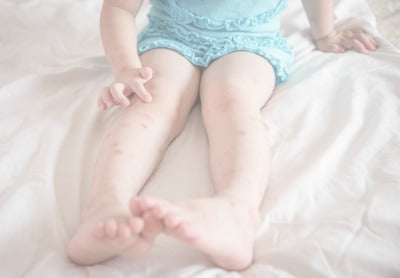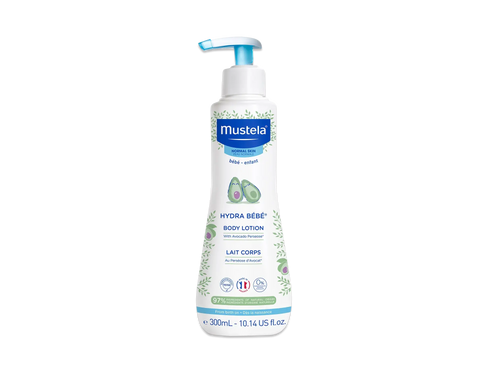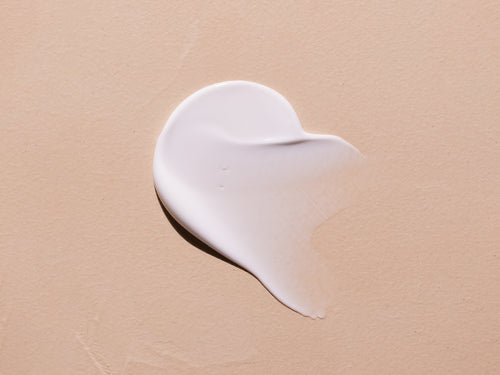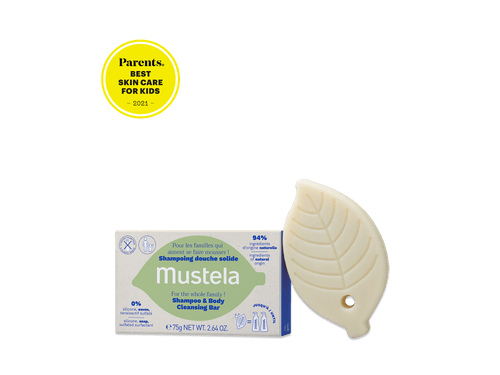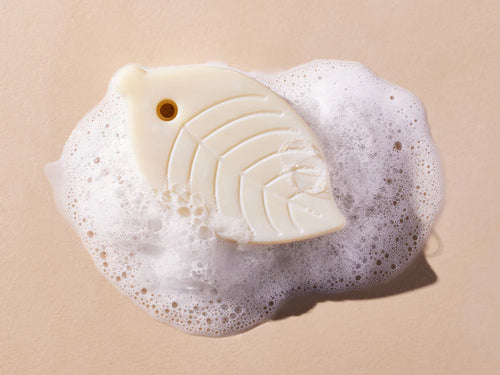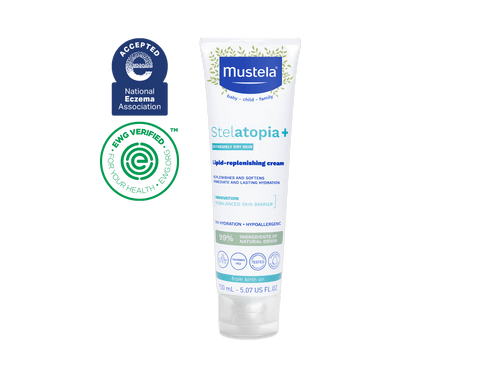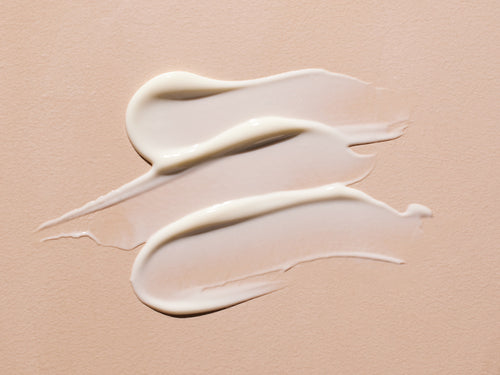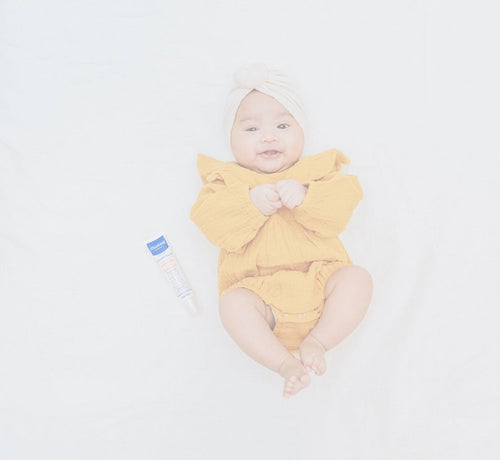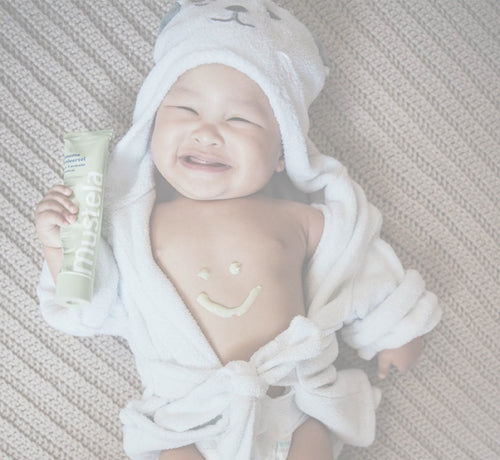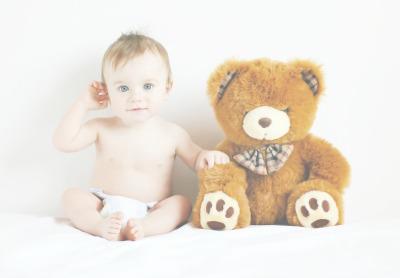Spending time outside with your little one — whether it’s an afternoon at the park or an evening stroll through your neighborhood — is great fun until your baby goes home red and itchy. Whether you’re dealing with mosquito, ant, or flea bites on your baby, we’re here to help.
In this article, the baby experts at Mustela tell you how to prevent, identify, and treat bug bites on your baby. With these tips, you can keep your little one as comfortable as possible and get them back to playing in no time!
Table Of Contents
- Preventing Bug Bites On Your Baby
- Identifying Mosquito, Ant, And Flea Bites On Your Baby
- Treating Bug Bites On Your Baby
Preventing Bug Bites On Your Baby
Get ahead of the game by trying to prevent bug bites entirely. Here are nine steps you can take to fend off the bugs before you and your little one even walk out the door.
1) Avoid Being Outside In The Evening Hours
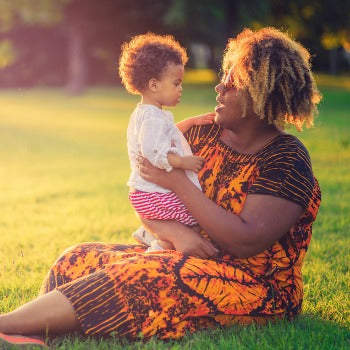
During the summer, you’ll probably want to enjoy the cooler temperature that the evening provides. But this is just when mosquitoes typically come out in full force.
Your baby can get mosquito bites at any point in the day (and at night if one gets inside your house!), but bites are most common in the early evening hours.
For this reason, plan your outside activities for a different time of day if possible.
2) Dress Your Baby From Head To Toe
When you go outside, put your baby in clothing that will keep the bugs off of their skin. While you don’t want your little one to get too hot, dressing them in cool clothing that covers their arms and legs will help prevent bug bites.
Long-sleeved rashguard style shirts are great for keeping mosquitoes away from your baby’s stomach, back, and arms. And, if you’re going to be in an area with a lot of trees or plants, consider putting your baby in long pants to keep irritating bugs off their skin.
Expert Tip: If your baby spends lots of time outside in the sunshine, care for their skin afterward by applying Mustela’s After Sun Lotion. This creamy moisturizer will cool and refresh their skin while counteracting the dehydrating effects of the sun.
3) Avoid Tall Grass And Dense Vegetation

When you’re out and about with your baby, take care to avoid tall grasses and other dense vegetation. These areas are ideal hiding spots for numerous bugs, including ticks.
If possible, stick to mowed areas and well-worn paths. Fewer bugs will lurk in these areas, so your baby will be less likely to get bitten.
4) Apply Bug Repellent
Regardless of the time of day or the clothes your baby is wearing, armor up to fight the bugs with insect repellent. That said, always make sure your bug spray is safe for your little one.
According to The American Academy of Pediatrics, you should not use bug spray containing DEET on babies younger than two months of age. But if your child is over two months, they recommend using a product with 10 to 30 percent DEET.
But even if you're using a kid-friendly spray, it's important to apply it correctly. Be sure to follow the directions on the package, and don't apply it to your baby's eyes, mouth, or hands. If you're spraying it on, shield their face with your hand to prevent it from getting in their eyes.
And if your little one isn’t old enough for bug spray yet, consider adding mosquito netting over their infant car seat or stroller.
5) Wash Bug Repellent Off At Night
While bug repellent can keep the bugs from bothering your baby, you don’t want to let it sit on their skin longer than necessary. At the end of the day, wash the repellent off of your little one during their bath.
While you’ve got them in the bath to wash the day away, treat your baby’s sensitive skin to some TLC with our fragrance-free, sensitive-skin-friendly Stelatopia Cleansing Gel or Soothing Cleansing Gel.

6) Use Fragrance-Free Products
Your sweet little one smells good to you, but you don’t want them to smell sweet to the bugs! Use fragrance-free products on your baby’s skin to help keep the bugs away.
For a fragrance-free bathtime, try Mustela Stelatopia Foam Shampoo, which is also great for babies with eczema-prone skin.
And, instead of a flowery-smelling lotion, moisturize your baby’s skin with a fragrance-free lotion, like Mustela Soothing Moisturizing Body Lotion.
7) Bug-Proof Your Home
While you can’t always prevent the stray insect intruder, there are a couple of things you can do to keep mosquitoes from hanging out near your house or sneaking inside.
Mosquitoes reproduce in standing water, so cut them off at the source by doing away with any standing water near your house. Think about birdbaths, fountains, ponds, toys that gather water, and standing water in your yard.
Secondly, install screens on your windows and doors to keep the nosey bugs out. You’ll want to check the screens frequently to make sure they don’t have any holes.
Bonus: If you take long walks in the stroller, consider a screen for your stroller as well!
Finally, take time to seal any holes or cracks in your foundation or the rest of your house where bugs might be able to sneak in. You might need to hire a professional for this one, but it can really help keep insects outside where they belong.
8) Check For Ticks
As we mentioned above, when exploring the great outdoors with your little one, a tick might try to hitch a ride. Check your baby (and yourself!) for ticks after any outdoor activities, especially if you've been in the woods or the long grass.
As you check, look carefully along their hairline, behind their ears, in their armpits, and around their waist. Ticks like to hang out in these places because they're warm and moist.
If you spot a tick, don't panic! There are a few different ways to remove them. The Centers for Disease Control and Prevention (CDC) recommend using tweezers to grab the tick as close to the skin as possible and pulling it straight out.
If you have any concerns or questions about removing the tick, don't hesitate to give your child's pediatrician a call.
9) Pay Attention To Outbreaks
Some bugs carry diseases that can be harmful, or even deadly, to humans. The most well-known example is the mosquito, which can transmit diseases like Zika virus, malaria, and the West Nile virus.
To help protect your little one, keep an eye on local and national news for reports of disease outbreaks in your area that are linked to insects. If there is one, take extra care to avoid bug bites.
Stay up-to-date on disease outbreaks through the CDC's Travel Health Notices website. Here, you can search by a specific destination to find out if there are any warnings in the area. If you’re planning a trip, this information can help you prepare.
When it comes to bug bites, an ounce of prevention is worth a pound of cure. By taking some simple precautions, you’ll help keep your baby safe from harmful bugs and the diseases they might carry.
Identifying Mosquito, Ant, And Flea Bites On Your Baby

Even with the best preventive measures, you might still find the occasional bug bite on your baby. To determine if you’re dealing with a mosquito, ant, or flea bite, you need to know what to look for.
While most bites show up as a red, itchy, or swollen bump on the skin, there are a few ways to tell them apart.
Mosquito Bites
A mosquito bite will show up as a round, red bump that’s itchy, hard, and a bit swollen. Mosquito bites don’t necessarily form a pattern, so your baby may have just one, or they may have a few sporadically covering an area.
You might notice your baby scratching at mosquito bites more than other bug bites. That’s because mosquitoes inject a small amount of anticoagulant from their saliva into the skin when they bite.
This process makes it easier for them to suck out blood. But, unfortunately, this substance also irritates the skin.
Flea Bites
Flea bites usually appear in groups of three or four little bumps. They don’t swell like mosquito bites, and they’re not as big. Instead, they’re small, red, and very itchy.
The location also helps distinguish flea bites. Unlike mosquitoes that bite anywhere on the body, flea bites tend to show up on the ankles, legs, waistlines, and buttocks. These areas are prime real estate for fleas because they’re easy to reach when your baby is sitting or lying down.
Ant Bites
Ant bites are also small, but they usually develop a blister or red pustule. Some people are severely allergic to ant bites, so you should also be on the lookout for signs like swelling in the face and trouble breathing or swallowing.
Other Types Of Insect Bites
While mosquitoes, fleas, and ants are the most common culprits when it comes to bug bites, there are a few other critters that might take a nibble out of your baby.
Bedbugs, for example, can bite, but their bites are usually painless. You’ll know you’re dealing with bedbugs if you see small, red welts in a line or cluster on your baby’s skin. These welts are often mistaken for mosquito bites, but they don’t itch, and they don’t usually swell up.
Tick bites also look similar to mosquito bites, except the head of the tick may still be embedded in the skin. If you notice a small, dark spot on your baby’s skin that looks like a freckle or mole, check to see if there’s a tick attached.
Some stinging insects, such as wasps, can bite as well. These bites are usually more painful than itchy and may cause swelling, redness, and warmth in the area.
Depending on where you live, chiggers might also be an issue. These tiny mites live in the grass and attach themselves to clothes and your baby's nearby skin. Chigger bites can be extremely itchy and may cause a red, raised welt. If scratched, they can quickly become infected.
Knowing how to identify bug bites is the first step in treating them. But no matter what type of bite your baby has, our experts have a few general treatment tips to follow.
Treating Bug Bites On Your Baby

While they can be annoying, bug bites are usually no problem and only require itch management. However, keep an eye out for signs of fever or infection, which would both warrant a visit to the pediatrician.
You’ll want to watch for these symptoms:
- Pus or redness spreading from the bite
- A high fever
- Excessive crying or irritability
- A large number of fire ant bites
Keep in mind that infections don't always show up right away. So, check the bite area at least once a day while it heals. And if you notice any alarming changes, such as it turning an angry red color or it causing your baby pain, call your pediatrician.
Also, be aware that if your child has an allergy to bites or stings, they may experience swelling in their face, difficulty breathing, or difficulty swallowing and you’ll need to call 911.
Though rare, anaphylactic shock is a possibility with any type of bug bite, so it’s always better to be safe than sorry.
But if you’re just dealing with a normal, itchy bug bite, your job is to reduce the itching and keep your child as comfortable as possible while the bite heals. We have a few tips to help you do exactly that!
1) Clean The Area
Before anything else, clean the bite area with gentle soap and water. If you don’t have access to water, no worries — clean their skin with micellar water, like Mustela’s No Rinse Cleansing Water (which is easy to carry in your purse or diaper bag!).
Cleaning the bite helps remove any dirt, bacteria, or saliva that may be on your baby's skin and can also help to prevent infection.
2) Calm The Itch
Bug bites can be very frustrating and itchy for your baby. There are a few different ways to reduce the itch and help your little one relax.
To reduce itching from the outside, apply calamine lotion or anti-itch cream. To address itching and pain from the inside, give your little one an oral antihistamine or acetaminophen. Just be sure to talk to your pediatrician about dosage first.
Another way to soothe your baby’s itchy skin is by applying Cicastela Moisture Recovery Cream. This fragrance-free, hypoallergenic ointment repairs irritated skin and soothes discomfort.

Cicastela Moisture Recovery Cream is safe for the whole family, even your newborn! Keep this versatile cream handy because you can use it on bug bites as well as scratches, scrapes, traces of chickenpox, and redness in the diaper area.
Finally, reduce itchiness naturally by applying a cool washcloth or ice cube wrapped in a towel to the bug bite.
3) Prevent Scratching
Scratching a bug bite only serves to make the itch worse and potentially break the skin or pop the blister, making it susceptible to infection. But keeping your baby from scratching an itchy bug bite is easier said than done!
Do your best by keeping your little one’s fingernails trimmed short and putting mittens or socks on their hands. If they do scratch a bug bite and open it, clean it, and apply a bandaid.
The same goes for ant bite blisters. Don’t intentionally pop the blister, but if your baby happens to do so, clean the area and cover it with a bandage.
4) Get Rid Of Fleas
If you’re treating flea bites, one of the most important things to do is get rid of the fleas themselves. And this is a job for the bug-fighting professionals.
Before you call in the troops, figure out where the fleas are. They might be hiding out in your home, on your pet (in which case, they’re probably in your home as well), or in the doghouse.
If your home is not the culprit, think about where your baby could have come into contact with fleas and do what you need to do to keep them away.
5) Reduce Swelling
Some people experience more swelling than others when bitten by a bug. If your baby's skin is looking a little puffy around the bite, you can help reduce the swelling with a cold compress.
To make a cold compress, simply wet a clean cloth with cool water and apply it to the affected area. A bag of frozen peas or corn wrapped in a towel also works. Apply the compress for 10 minutes at a time, as needed.
Your baby might not appreciate the cold, wet feeling at first, but it will help reduce the swelling.
6) Help Your Baby Sleep

Itchy bug bites can make sleep difficult. To help your little one drift off to dreamland, try giving them a bath before bed. The warm water can soothe the itch and help them relax.
After the bath, apply Cicastela Moisture Recovery Cream to the bug bite, and dress your little one for bed in a pair of comfortable pajamas. Since they're designed to help fight the itch associated with eczema, our Stelatopia Skin Soothing Pajamas are perfect for this purpose.
If your baby is still having trouble sleeping, give them a dose of an oral antihistamine or acetaminophen before tucking them in. Just be sure to talk to your pediatrician first about the appropriate dosage.
With any luck, the itch will be forgotten, and your baby will sleep soundly through the night. But if they wake up, remember to be patient and calm. Your baby doesn’t understand why their skin itches so much so they might be a little cranky.
7) Wait For The Bite To Heal
Most bug bites will heal on their own within a week or two. But, if the bite is particularly large or painful or if your baby has scratched it open, it might take longer to heal.
You'll notice the redness and swelling start to go down as your baby's body works to heal the bite. Its size might also change as it heals, becoming smaller and less noticeable.
If the bite doesn’t seem to be getting better after a week or two, or if it starts to look infected (red, inflamed, pus-filled), call your doctor. They'll be able to tell what's going on and whether your baby needs any further treatment.
Enjoying The Great Outdoors

In the end, dealing with bug bites on your baby is all about preventing them before they ever happen and managing the itchiness when one breaks through your defenses.
To soothe skin when the bugs do bite your little one, apply Mustela’s Cicastela Moisture Recovery Cream. And remember to use fragrance-free skin care products at bath time, like Mustela’s Soothing Cleansing Gel.
With these products and the tips in this article, your family can enjoy the great outdoors worry-free!


